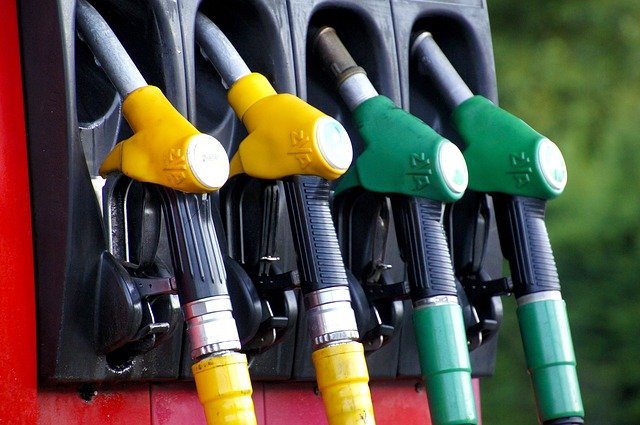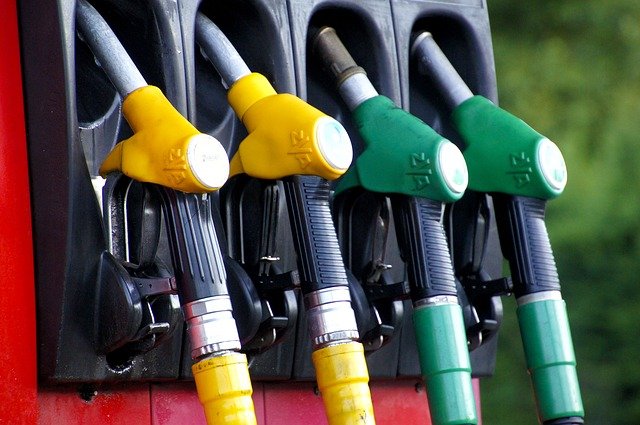Nigeria’s growing population of over 200 million people is facing an ever-growing fuel crisis despite its vast oil reserves.
The shortage of refining capacity at existing oil refineries is the main driver of Nigeria’s fuel crisis, which hampers the socio-economic development of the country. It places a high subsidy burden on the government and has long made Nigeria dependent on imported petroleum products. The country uses little renewable energy.

The fuel crisis has also led to the proliferation of artisanal refineries in the oil-producing Niger Delta region, with huge environmental and health challenges.
The recently signed Petroleum Industry Act (PIA) 2021 aims to pave the way for increased investment in Nigeria’s crude oil refining capacity.
It also seeks to address the grievances of oil-producing communities: unemployment, lack of socio-economic development and environmental pollution. The Act made a provision for a less cumbersome process for granting operational licenses to investors in the downstream oil operation, which could increase investment interest in modular refineries.
Recently, there has been increased interest from the Nigerian government’s petroleum ministry in modular refineries as a means of addressing the deficit of petroleum products.
Modular refineries are simplified crude oil refineries with capacities ranging from 1,000 to 30,000 barrels per day. They are well-suited for remote areas.
Over 30 licences for modular refineries were issued in 2015 by the Department of Petroleum Resources (now Nigerian Upstream Petroleum Regulatory Commission).
But very few operate effectively, because of inconsistencies surrounding policy and regulations in Nigeria’s investment space. There is however no clarity in the petroleum industry Act to remedy these inconsistencies.
Currently, modular refineries are considered useful to help meet energy demand in the country. But in view of the global call for the reduction of greenhouse gas emissions, they are a short term solution.
At the 2021 climate change conference in Glasgow, Nigeria’s President Muhammadu Buhari pledged to achieve net zero emissions by 2060. This would mean de-carbonising the oil and gas sector.
Modular refineries as a solution
The modular refinery technology has appeal on several fronts. It is simple and easy to replicate.
These refineries can be constructed within 12 to 20 months. They can be built in phases at a low cost and provide flexibility for upgrades based on an investor’s preference.
They can pay for themselves in one to five years, depending on the type of refined products.
Nigeria refines almost none of its own crude oil. The cost of importing refined petroleum products exceeded petroleum exports by US$43.56 billion in 2020. If modular refineries reduced or eliminated fuel importation, they would save money spent on importation and subsidies and reduce pressure on foreign exchange.
The refineries are normally sited close to oil production facilities. This creates opportunities for more Nigerian firms, which are the main players in the onshore marginal oil fields.
Local people could be engaged in making, installing and operating the refineries. This would provide employment, which is much needed in the oil-bearing communities. The low technology requirement allows local engineers and technicians to participate.
The Nigerian Content Development and Monitoring Board, promotes local content in the oil and gas industries, has envisaged 70% of the fabrication activities within the modular refinery space will be done locally.
The reduced pipeline network requirement has the potential to increase direct jobs in the form of truck drivers, sales support and other support services, which will be required to deliver the refined products to the last mile.
The sector could also drive petrochemicals research and development in the local universities.
Challenges
Although modular refineries may help in meeting Nigeria’s growing demand for petroleum products and have a number of other potential benefits, they bring challenges too.
Policy and regulations: There is a lot of uncertainty and inconsistency surrounding policy and regulations in Nigeria’s investment space. This has been blamed for a US$15 billion loss annually in foreign investments.
This experience could discourage investors and may be the reason many modular refinery licences have expired.
Social challenges: Lack of integration of the existing illegal artisan refineries into the mainstream of the modular refineries could create tension and result in oil theft and armed conflict.
Carbon emissions: Oil refining contributes about 5% to 10% to global total emissions. It could increase with the proliferation of modular refineries, which are less efficient than conventional refineries. Nigeria’s emissions commitments might require the modular refinery operators to introduce greening technologies.
Technical challenges: Premium motor spirit, or petrol, is the product in greatest demand in Nigeria. Making it in a modular refinery requires catalytic reformers and fluid catalytic cracking unit or hydro-cracker units. These units present most of the technical challenges in existing refineries in Nigeria.
Solutions
Some of the identified challenges could be addressed as a short term solution to the energy crisis.
Steps might include:
- coordinating regulations to build investors’ confidence
- incorporating existing local technologies – artisanal refineries – into the mainstream
- collaboration between the modular refinery operators and institutions of higher learning in the country to develop better catalysts.
But the long term solution to the energy crisis would be to incorporate green technologies into modular refinery operations.
This is important so as not to undermine Nigeria’s efforts to de-carbonise the country. Another solution could be the use of renewable energy in the transport sector to reduce the demand for refined petroleum products.
Chukwumerije Okereke is Professor of Environment and Development at the University of Reading. Nnaemeka Vincent Emodi is Research Fellow at The University of Queensland. Ogheneruona E. Diemuodeke is Senior Lecturer at the University of Port Harcourt.
This article is republished from The Conversation under a Creative Commons license.

